Rwanda, once having experienced horrific conflict, is now growing into peace and prosperity. While the capital city of Kigali is rapidly growing with economic and societal development, traditional values and spirit in community ties and human relations remain the foundation of the daily lives of the Rwandese people. Beautiful and unique traditional cultures, featuring peace baskets, traditional “Intore” dancing, Rwandese coffee and tea, and rich biodiversity (Rwanda is home to the charismatic mountain gorilla) continue to enrich this small yet energetic nation in East Africa, the "land of a thousand hills."
Rwanda’s Life and Culture
Rwanda is one of the most densely populated countries in African with 10 % of its population living in the capital Kigali. While the city has enjoyed a construction boom, with big and modern buildings rising on its skyline in recent years, agricultural activities are the primary income source for the majority of people in Rwanda. Blessed with rich volcanic soil perfect for many types of agriculture, Rwanda’s coffee and tea industries are increasingly becoming recognized in the modern global market. Its misty volcanoes and rich biodiversity include the habitat of the mountain gorillas, whose charisma and fascinating family lives attract the increasing number of tourism visitors every year, with almost one million visitors in 2008. “Agasake”, the internationally known “peace basket”, and the traditional dance “Intore” feature in Rwanda’s colorful authentic cultures
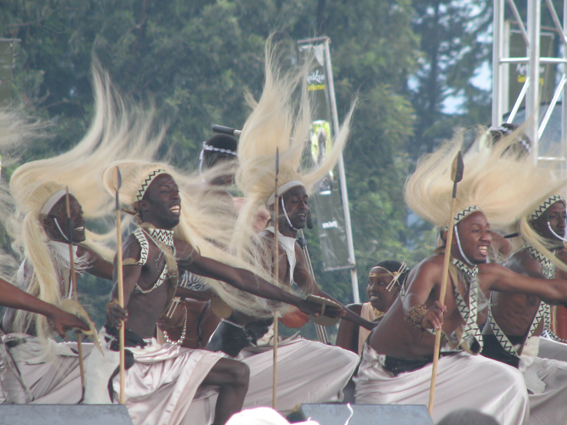
Rwandese men perform their traditional powerful “Intore” dance. They can jump as high as their fellow dancer’s head, chanting with their powerful voice.
Image 1 of 48
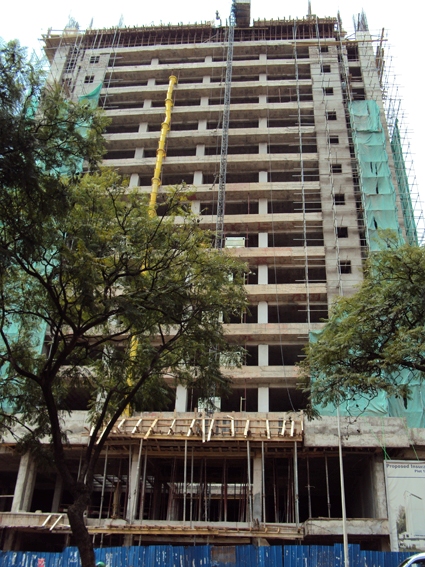
Modern office towers are appearing on the city scene.
Image 2 of 48
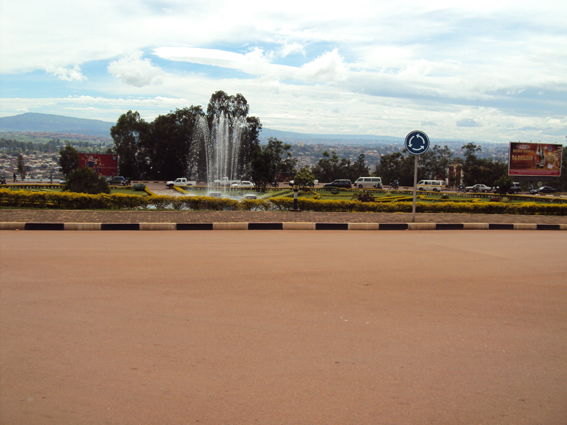
Beautiful fountains are featured throughout the city. Every weekend, brides and grooms stand stop at the fountains with their friends and family to celebrate their happiness and bright future.
Image 3 of 48
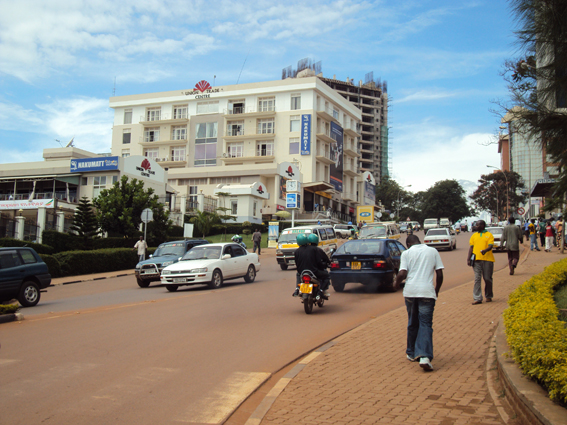
Infrastructure is well established across the country. Both vehicles and people enjoy paved roads in Kigali’s commercial district.
Image 4 of 48
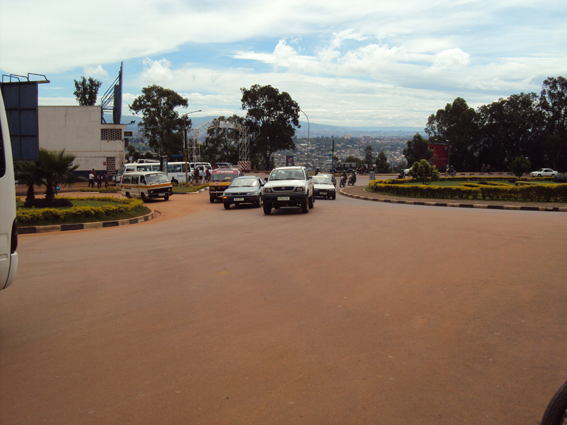
Rwanda is known for clean and neatly organized streets. One will find very little trash on the street.
Image 5 of 48
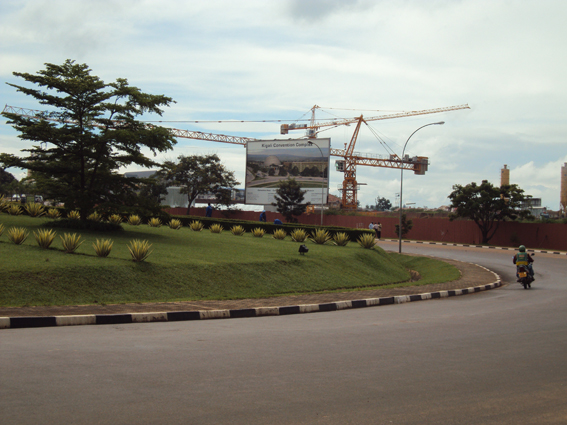
The country, particularly the city of Kigali, has experienced a construction boom in recent years. Hotels, office towers, housing and apartments are being built to accommodate both Rwandese and visitors.
Image 6 of 48
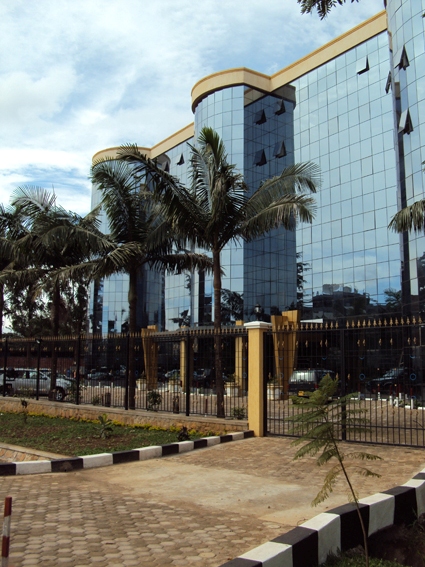
One of the newest buildings in Kigali is right around the corner from the JICA Rwanda Office. With the entire front facade covered by shiny blue glass and featuring palm trees at the entrance, this building in particular stands out.
Image 7 of 48
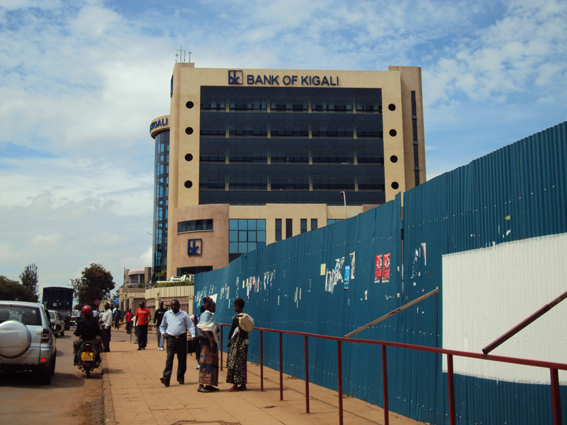
The Bank of Kigali is right in the center of Kigali’s commercial district. This modern skycraper catches the eye even in the city’s commercial scene.
Image 8 of 48

Because of the Rwanda’s wealth of nature, mild climate, the capital Kigali is very green. Everywhere you go, beautiful flowers and trees, including hundreds of avocado trees, add to the city’s green reputation.
Image 9 of 48
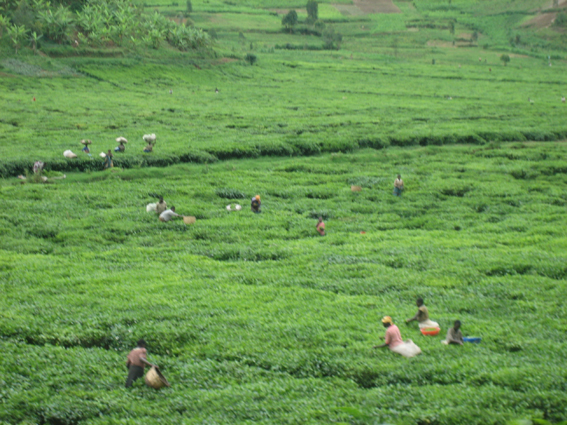
Rwanda tea is one of the nation’s proudest products. The country’s hilly ground and ever present mist provides an ideal environment for the best tea plantations.
Image 10 of 48
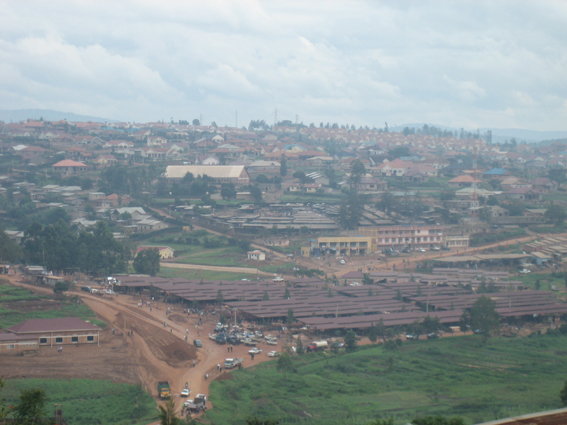
With its constant development, Kigali city has been rapidly expanding every year.
Image 11 of 48
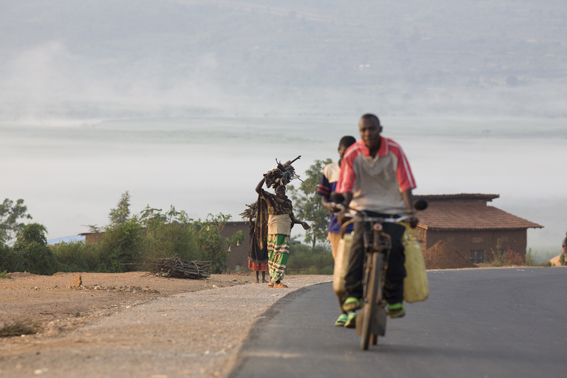
In Kigali city, motorcycles are a common lifeline. In a country side, the bicycle is often the main form of transport. / Photo courtesy of Atsushi Shibuya
Image 12 of 48
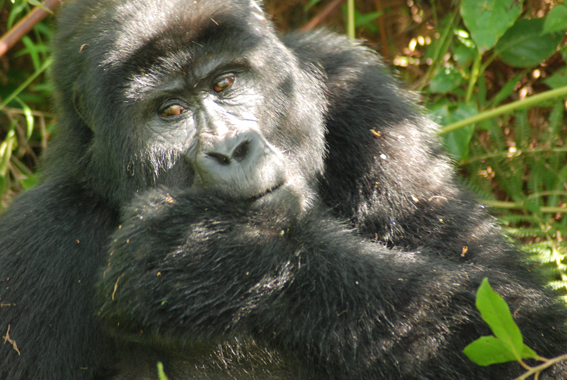
With only 700 remaining in the world, the charismatic mountain gorilla attracts many tourists to Rwanda every year. With a male silver back gorilla as the leader, mountain gorillas live and move in family groups.
Image 13 of 48
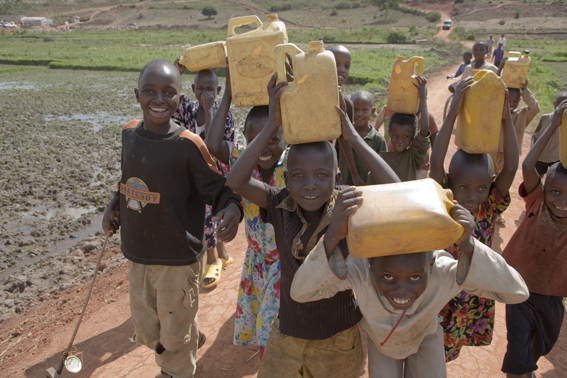
With the country’s official language shifted from French to English in 2009, Rwandese children are enthusiastic to test their new language abilities. They often walk up to “muzungus (foreign people)” to shake hands and say “hello- hello-” and “how are you?”/ Photo courtesy of Atsushi Shibuya
Image 14 of 48
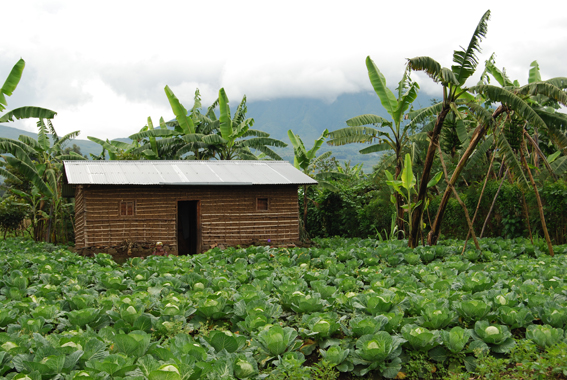
Cabbage is one of the most popular and widely grown crops in Rwanda Volcanoes
Image 15 of 48
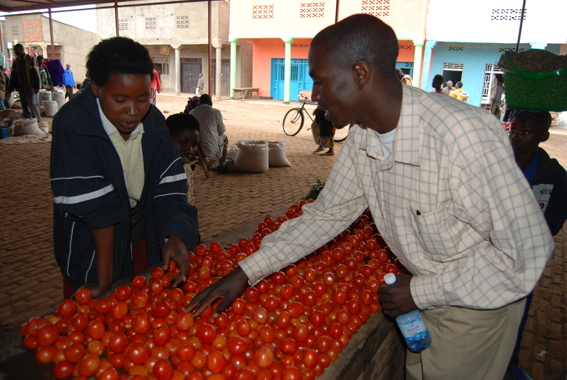
Over 85 % of population relies on agricultural activities in Rwanda. At the city’s main vegetable market, farmers bring their products and neatly display them for sale.
Image 16 of 48
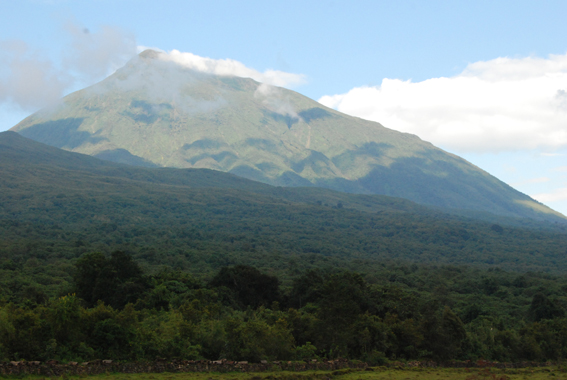
National Park is home for some of the only 700 mountain gorillas remaining in the world. Wild nature and rich biodiversity are two of many experiences Rwanda can proudly offer to the world.
Image 17 of 48
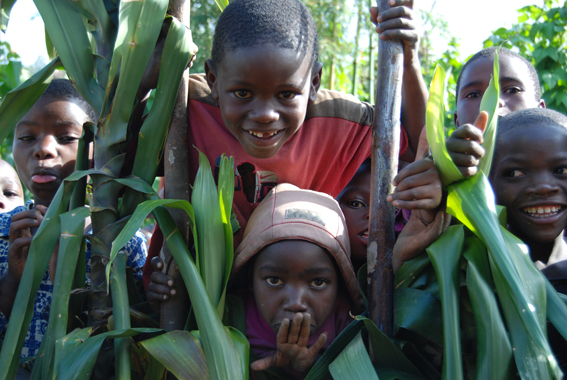
A common attribute for children worldwide is their great curiosity with everything. Rwandese children will never hesitate to greet you.
Image 18 of 48
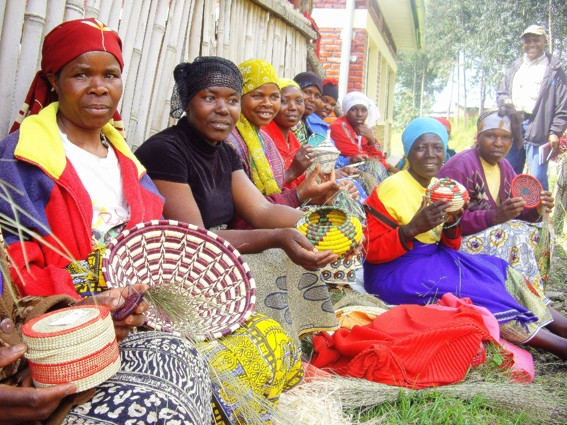
Rwanda’s “Agasake”, or as peace basket, is well known and is quickly becoming a global handicraft brand. Members of a local women’s cooperative in Kinigi, Northern Province, weave beautiful, colorful baskets for sale to better their own lives.
Image 19 of 48
JICA’S Activities
Skills training for former soldiers with disabilities, portable water access to local communities, technical training in Japan, easy access to fertilizers for local farmers, and income generation activities in local communities: these are a few examples of our ground activities in Rwanda through our technical cooperation, grant aid assistance, technical training and volunteerism. With enthusiasm, passion and a common spirit for positive change, the JICA Rwanda Office continues to support the country to achieve its national development goals, and work towards a brighter future for all Rwandese and for East Africa as a whole.
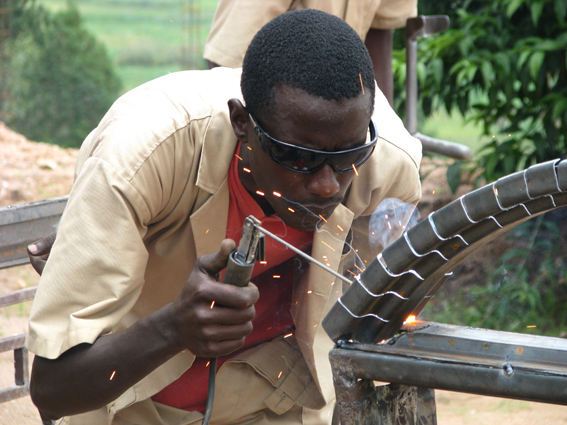
JICA supports demobilized soldiers with disabilities for gaining skills to rebuild their lives in local Rwandese communities.
Image 20 of 48
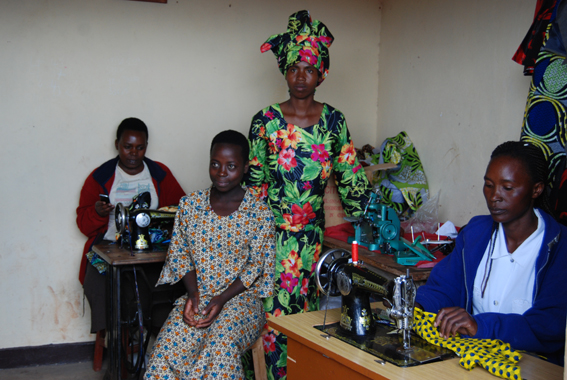
Demobilized soldiers with disabilities also include women. Chantel, in the middle, formed her own tailoring cooperative after her vocational training, and now is well reintegrated in her local community.
Image 21 of 48
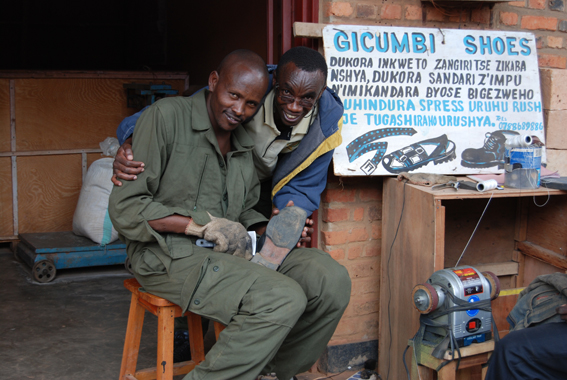
Bosco, in his green work gear, is also one of the graduates from the vocational training. He owns his own shoe business with his civilian business partner.
Image 22 of 48
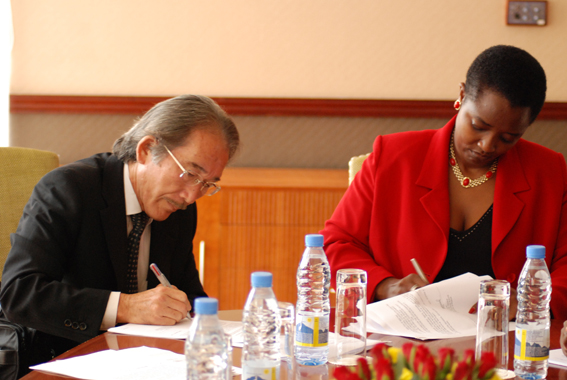
Mr. Hiroshi Murakami, Resident Representative of the JICA Rwanda Office, and Ms. Mary Baine, Commissioner General of the Rwanda Revenue Authority sign a Record of Discussion on the Japanese technical cooperation project for Capacity Building for the Customs Administrations of the Eastern African Region (Phase II). . .
Image 23 of 48
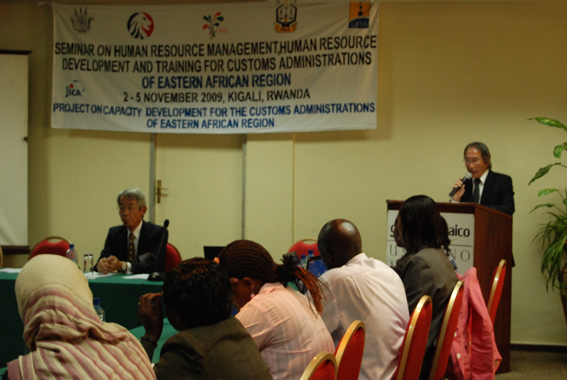
Mr. Hiroshi Murakami, JICA’s Resident Representative in Rwanda, gives his remarks at the First Regional Joint Coordinating Committee (RJCC) in Kigali for the project “Capacity Building for the Customs Administration of the East African Region (Phase II)”
Image 24 of 48
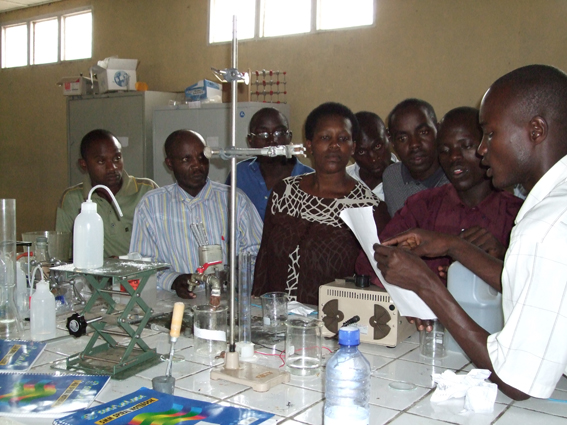
Science and mathematics teachers in secondary school learn the know-how of teaching through JICA’a project: “Strengthening Mathematics and Science Secondary Education (SMASSE) Rwanda”
Image 25 of 48
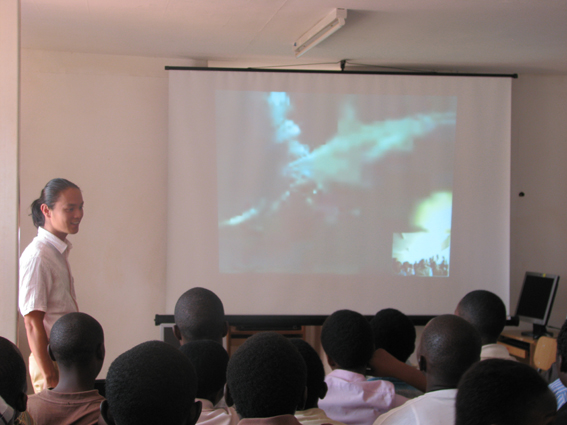
A Japanese ICT expert connects a local community in Ngoma District, Eastern Province with an aquarium in Japan through ICT technology.
Image 26 of 48
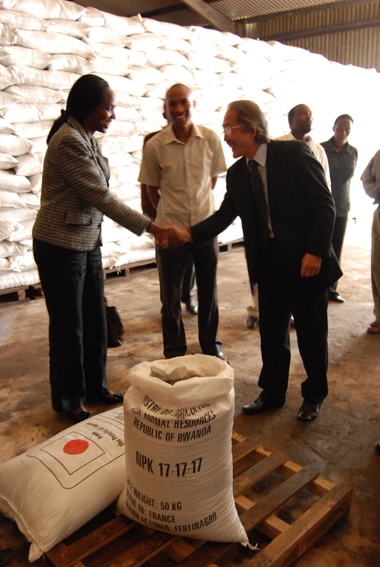
Japan provided 3,149 metric tons of agricultural fertilizers worth of 3.3 million USD to Rwanda through its grant aid.
Image 27 of 48
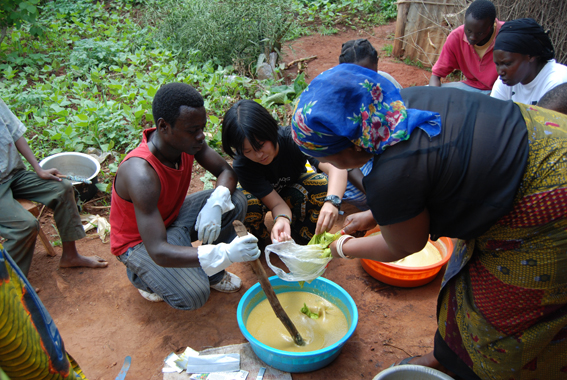
Ms. Chie Shimizu, a JOCV volunteer, works with local communities in Nyamirambo sector to produce handmade soap as an alternative income source for local residents.
Image 28 of 48
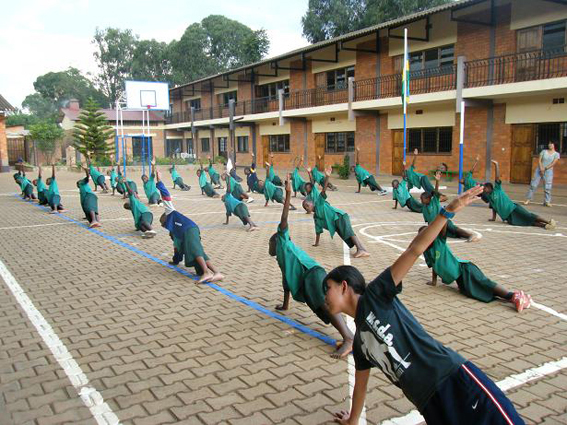
Ms. Maiko Fujiwara, a JOCV volunteer, teaches at Filippo Smaldone school, a special school for deaf children.
Image 29 of 48
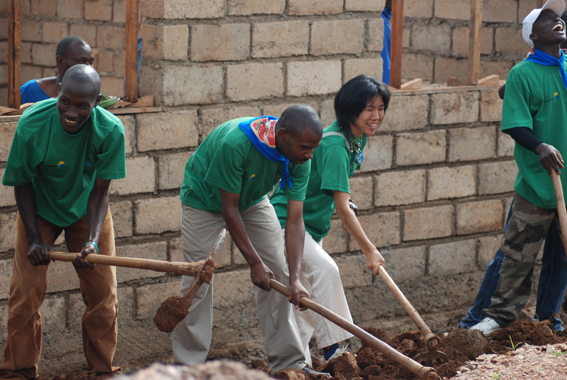
The 2009 International Volunteer Day (IVD) brought Rwandese and international volunteers, including JOCVs, together to support construction of a classroom at Akumunigo Primary School in Nyamirambo sector.
Image 30 of 48
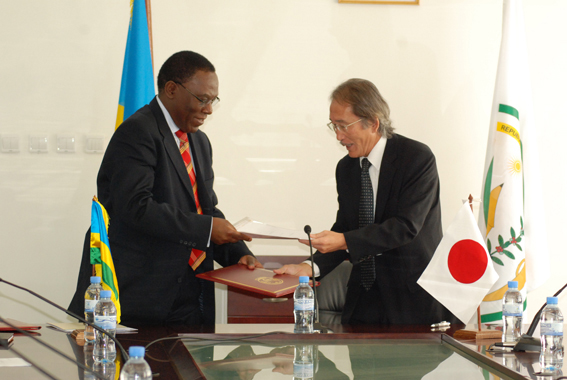
Mr. Murakami, JICA’s Resident Representative in Rwanda, promises to deliver Japan’s quality TV programs on various themes for the initiative: “The Project for the Improvement of TV Programs of Rwanda Television”
Image 31 of 48
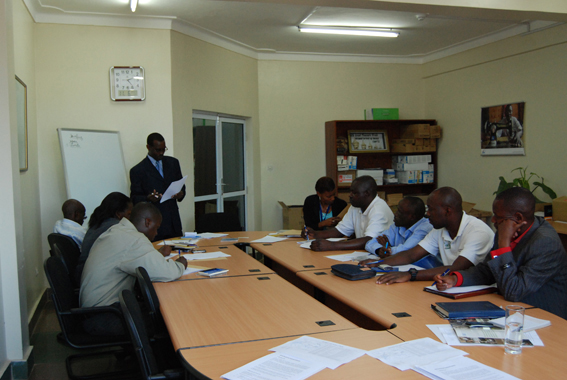
Before they depart for their training, participants in JICA’s Technical Training Program attend the pre-departure session at the JICA Rwanda Office for health, cultural and environment briefings.
Image 32 of 48
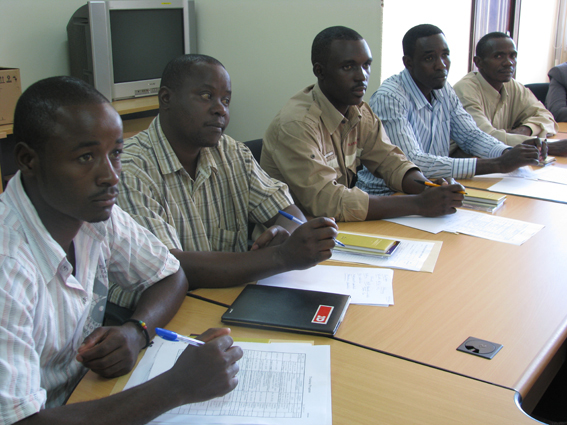
Automobile engineers from the Rwanda Public Transport Authority (ONATRACOM) participate in their technical training at Isuzu Motors in Japan through JICA’s Technical Training Program.
Image 33 of 48
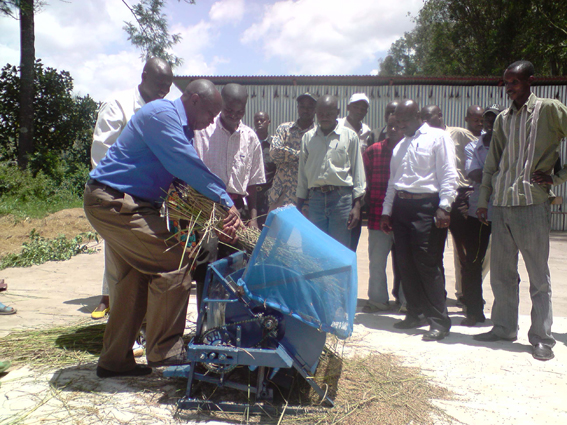
A former JICA Rwandese trainee in agricultural engineering demonstrates his new rice thread machine.
Image 34 of 48
10th Anniversary of JICA Rwanda office
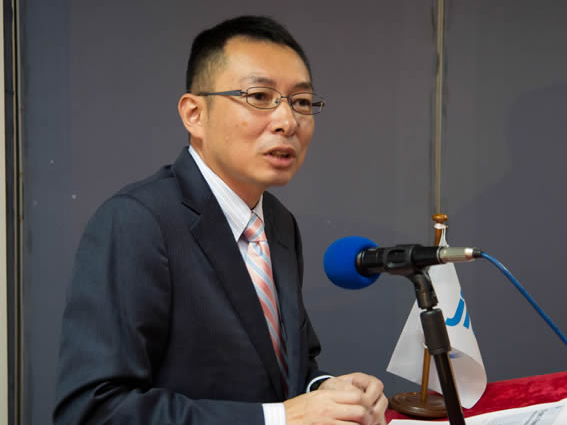
Chief Representative Moriya Takahiro
Image 35 of 48
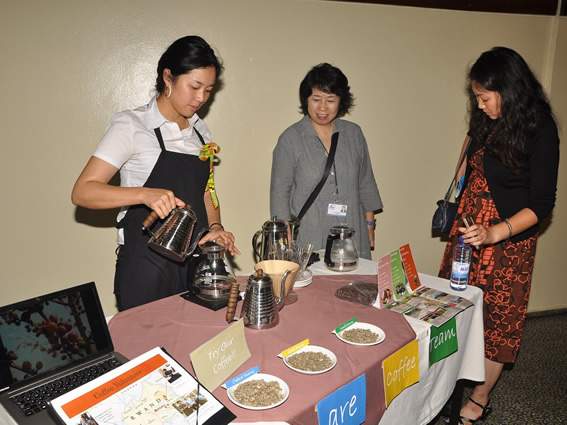
Coffee tasting made by JOCV
Image 36 of 48
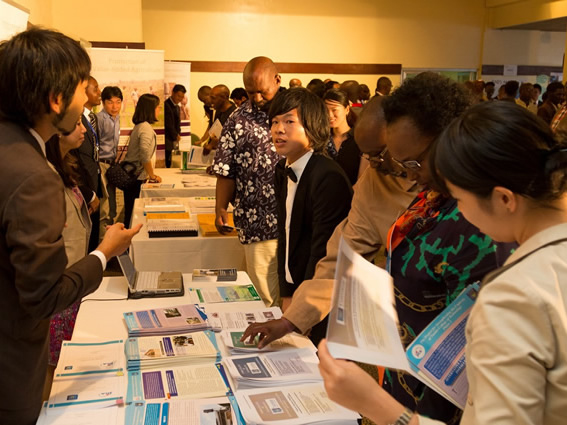
Exhibition stand visit
Image 37 of 48
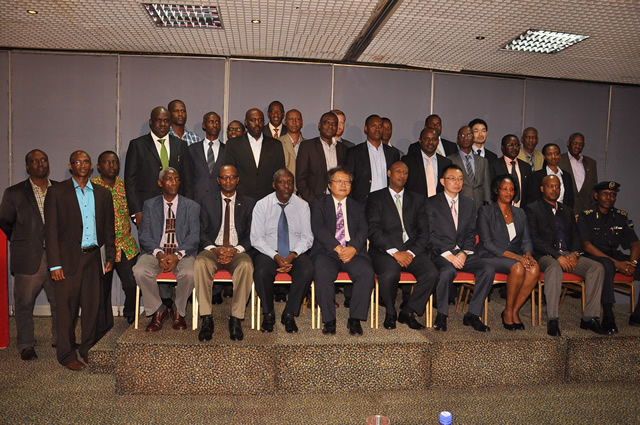
Group photo of VIP attending 10th anniversary event
Image 38 of 48
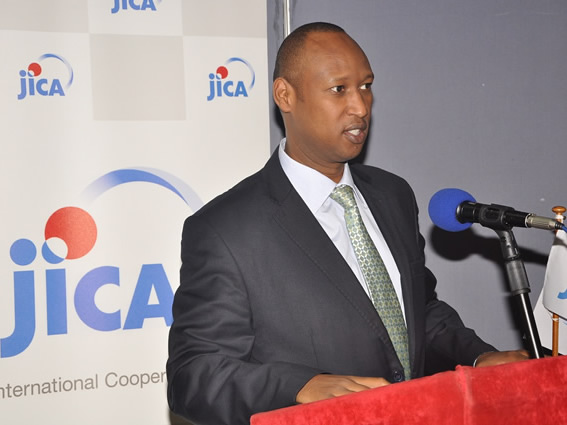
Guest of Honor Permanent Secretary at Ministry of Infrastructure Christian Rwakunda
Image 39 of 48
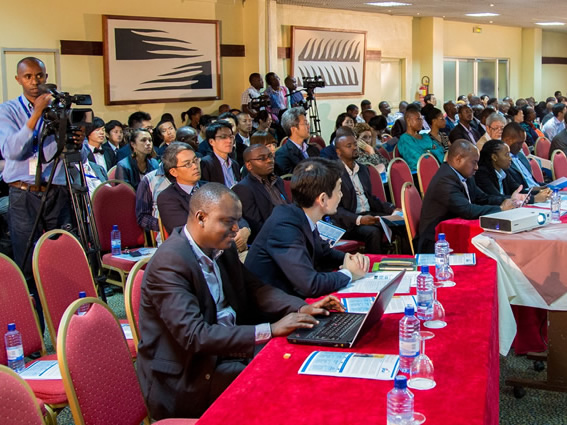
Guests attending 10th anniversary event
Image 40 of 48
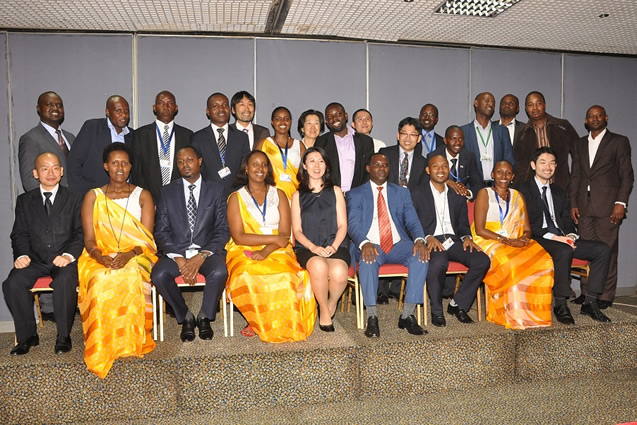
JICA Rwanda Office Staff at the event
Image 41 of 48
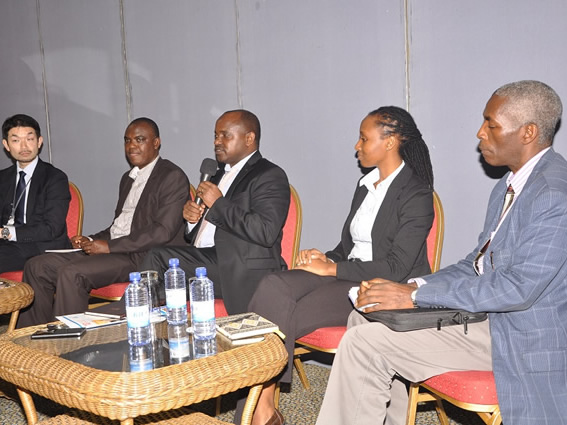
JOCV at the 10th anniversary event
Image 42 of 48
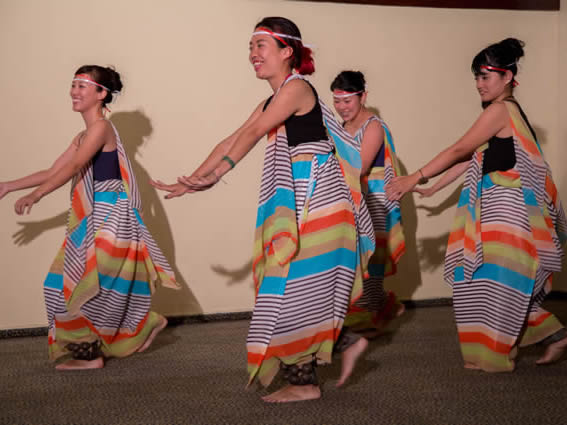
JOCV dancing rwandan traditional dance
Image 43 of 48
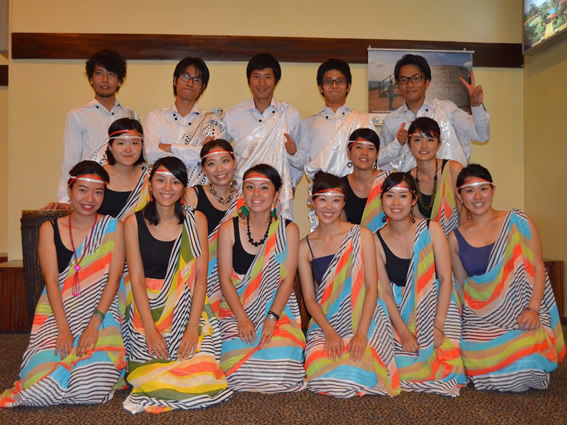
JOCV dressed in rwandan traditional clothes
Image 44 of 48
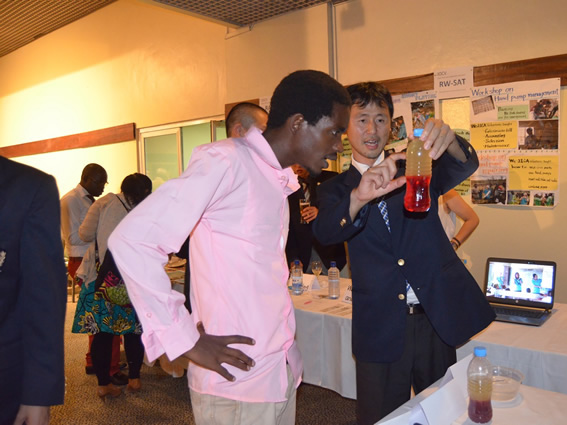
JOCV explaining some experiment
Image 45 of 48
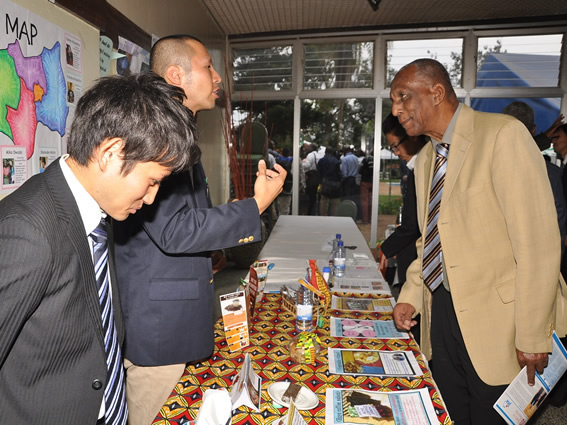
JOCV explaining what they do
Image 46 of 48
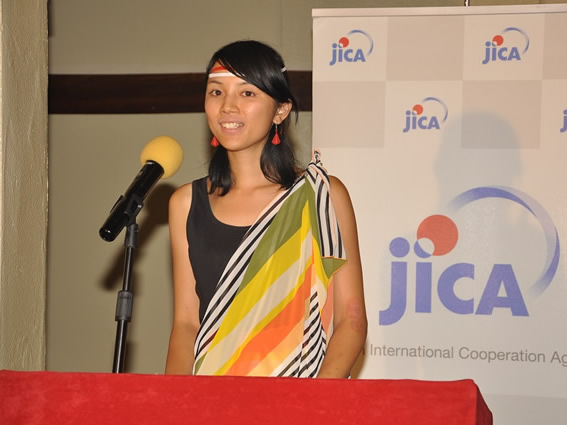
JOCV Mayu Furuoka makes speech in local language
Image 47 of 48
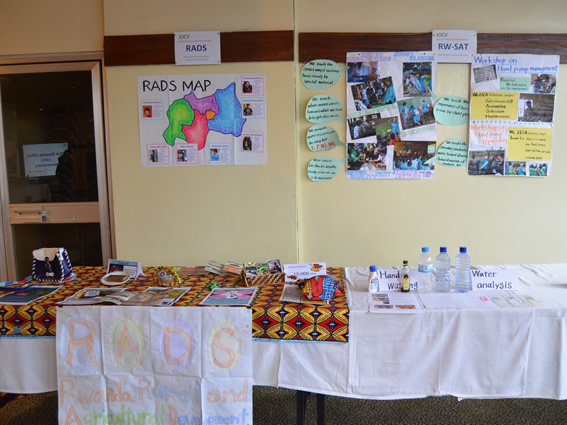
JOCV stand at the 10th anniversary
Image 48 of 48






scroll